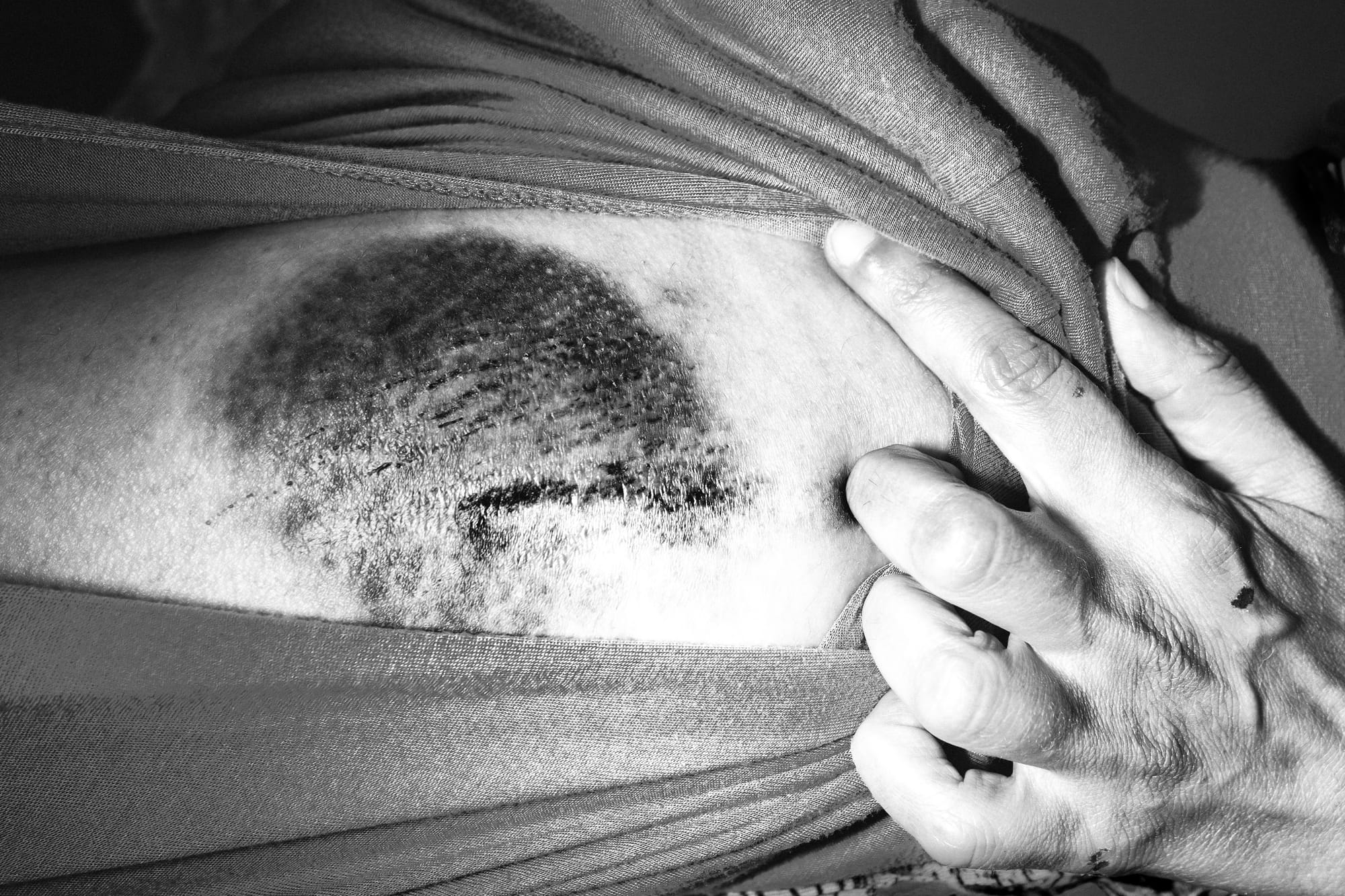Subvrt readers —
I try to send out a newsletter by the end of each week. This one was ready on Friday, but it’s Monday and I’m still hesitating. That’s because, well, it’s a bit more personal than usual.
It’s about what happened in my final year of university. I never told anyone about it, partly because it was embarrassing, but mainly because it was painful to go over again and I’d archived it away to a distant cloud server in a forgotten folder, unclickable and lost to time.
But something brought it back last week. I’m not sure how, or why, but the details of that summer evening in 1999 found me again. So I took it out, looked at it properly, and saw how much it still shapes the way I think. About power, institutions, and how narratives get formed. Writing it has been enormously therapeutic.
So here it is. If you’d rather skip over the personal story and head straight to the conclusion, go for it. Or bail out entirely, and I’ll see you in the next one.
All the best,
Mehran
1.
My university dorm had eight rooms and a shared kitchen, and it was a multicultural place. In our group were two girls from Japan with riveting stories about its earthquakes and customs and food. A French guy with one kidney (and extra body hair because of the medication). Mohamed from Sudan lived in the room next to mine, a captivating mix of mischievous and pious.
There was a good vibe in that dorm. And then there was Samuel.
I’ve changed his name because, well, you’ll see. I’m also not saying where he came from, for the same reason; let’s just call it a war-torn African country. Samuel appeared halfway through my final year. He was at least 20 years older than everyone else, was at the university on a research scholarship, and had left his wife and child back home. He was quiet, didn’t smile much, and dressed like a lecturer.
I was young and sociable and had bleached hair and a blonde girlfriend and would write electronic music until late into the night and almost immediately, Samuel disliked me.
It started with small things. Pre-Samuel, we would play music from our rooms. One day he snapped that I should stop “broadcasting” mine. The dorm quickly fell silent.
Then there was the time I was having guests over, and had propped the main door open for them with a fire extinguisher. He moved it and shut the door. When I asked why, he quoted me the regulations and incident statistics before walking off.
Most of all though, he hated the fact that my girlfriend, Brigitte, who lived in a different dorm, would stay over and sometimes use our facilities. Even though the spirit of the university was for people to move freely between the halls of residence.
I’m saying Samuel had a problem with me, but he had run-ins with my dorm-mates too. They just didn’t complain much. They accepted that he would leave them aggressive little notes (“Would the person who did X kindly STOP”), or move their crockery when it encroached on his allocated space. Technically, I guess Samuel was right — we were all bending the rules. But having him around sure poisoned the atmosphere.
And as the end of term approached, he would enter the kitchen, make his food and take it back to his room, without exchanging a word with anyone.
Ah yes, the kitchen. The main common room in our dorm. That’s where it happened.
2.
The kitchen was unusually full that evening. The Japanese girls were eating at the table. Mohamed was coming in and out. Brigitte was preparing food. Samuel was cutting vegetables. And I was standing next to him at the double sink, washing my plates in it.
He moved the tap to his sink. I hadn’t finished, so I moved it back to mine. And he punched me in the face.
I stumbled back, stunned. He shouted. I shouted. Brigitte tried to intervene. It was chaos. I turned and ran to find security.
Outside the dorm I found a guard and told him I’d been attacked. Then I remembered Brigitte was still in the kitchen, so I raced back and thrust open the door.
Samuel had pinned Brigitte against the countertop from behind, gripping her hair and holding the knife to her neck. Mohamed was in there too, trying to wrestle Samuel off her and keep the knife away, shouting “My brother, stop! Don’t do this!” The security guard entered behind me and yelled too, but didn’t intervene. Brigitte managed to turn and pummelled Samuel in the groin, and he staggered back.
But when Samuel saw I’d returned he lunged at me, spitting something about my mother and a whore, and struck me hard in the stomach as Mohamed yanked him back. I pulled Brigitte out of the kitchen and we escaped to the road below and kept running until it was safe. We collapsed on a grass verge, breathless and bloodied. I noticed she had no shoes on.
3.
At the hospital, they told us we’d been lucky: the knife had traced a line on Brigitte’s neck but hadn’t broken the skin, and it hadn’t punctured me anywhere. Mostly we had scratches and bruises; superficial.
I learned that while I was out looking for the security guard, Samuel and Brigitte had been arguing. She’d turned back to her food, and he’d gone for her. If the knife had been a few centimetres closer, the outcome could have been very different.
The police arrived and took a statement. They told us Samuel had been detained. “He’s been in trouble with us before,” the constable said. “And now his time here in the UK is up.”
The hospital wanted to keep me in for observation, since Samuel had landed a few good blows on my face and torso. But the only bed space available was an operating table. So I spent a sleepless night beside a wall-sized cabinet for surgical instruments, their names marked in bold letters on the glass: bone cutter, skull clamp, buzz saw. There were blood drops on the linoleum. You almost had to laugh. It was a fucking movie.
4.
When I got back to the dorm, Samuel had been moved off campus. And in the weeks that followed, we learned more about his history. Like how he had stalked and harassed a girl from his previous dorm, ringing her bell throughout the night. That she had filed a complaint, which resulted in Samuel being moved to our dorm. And that it wasn’t even the first time he’d had to be disciplined for aggressive behaviour.
And we met the warden, a middle-aged woman with kind eyes who oversaw our halls of residence. She apologised for the errors that led to all this, and assured us we’d get justice. “He’s crossed the line now,” she said in her soft Scottish accent. “And his foot isn’t going to touch the ground.”
There would be a hearing, as a formality, and Samuel would be out.
5.
The hearing was with the Dean of Students — red-faced and white-haired and jovial, who was responsible for student welfare — and the warden. They interviewed us one by one, taking Brigitte first as I waited outside in a wooden armchair in the grand, carpeted corridor.
Twenty minutes later she emerged. But something was wrong. She was shaking and crying, mouthing something to me I couldn’t make out. The Dean called me; it was my turn.
In his office, the Dean asked me to recount my version of events, and the months that led up to the attack. I started, but he soon cut in.
“It’s come to our attention you repeatedly broke the regulations,” he said with a smile.
The fire extinguisher. The music. And having Brigitte in our dorm.
“Yes, but everyone did things like that.”
“Nonetheless it’s quite serious.”
“OK, but the point is: Samuel attacked us. He had a knife. When is he going to get thrown out?”
“Nobody said that would be happening.”
“You did,” I said, pointing at the Warden. She was pale.
“I never said anything of the sort,” she lied.
I quoted her words back to her. I even used a Scottish accent, so clear were they in my head.
The Dean ignored me, and changed tack.
“There’s also the issue of your racist comments,” he said. Still beaming.
“What racist comments?”
“Samuel told us you made disparaging comments about his home country. About the weather and the food.”
I paused to think. Samuel, like Mohamed, was black. It hadn’t mattered before. Apparently, it did now.
During the first and only real conversation I’d ever had with Samuel, I’d asked him if it was hot back home, and what sort of food they ate. It was the kind of thing you say when you meet someone from a place you don’t know.
The Dean went on.
“And that generally you created an atmosphere to provoke Samuel, which led to what happened in the kitchen.”
I was stunned. We provoked him?
I protested, but they would not deviate from their line. The Dean concluded the hearing. And when the formal decision was released, it framed the situation as a conflict between two sides, with equal blame on both.
Samuel would stay off campus, but would continue his research at the university. There would be no disciplinary action against him.
I showed the decision letter to Mohamed. He muttered “Unbelievable,” more to himself than to me.
Brigitte and I were sick with anger. We could appeal, but we’d need a lawyer and time and it would be a messy process with no guarantees. We had exams to do, and my professional life was starting.
So we let it go. The university had betrayed us.
A year later, I found out why. Samuel’s research had been vital to them. If he’d left, the university would have lost out, financially and academically. He had to be allowed to stay, at all costs.
* * *
It’s hard to look deep in your past and draw through-lines to how you think now, to find cause and effect. But confronting myself with the Samuel story again, here’s where I’m landing.
What happened bred in me a profound mistrust in authority. It was a first-hand lesson in the moral failure of institutions, and how they will bend reality to protect themselves — even at the expense of truth, safety, or justice.
I also experienced how identity can be weaponised. Today, when I hear someone is accused of bigotry, whether it’s a celebrity or a politician or whoever, my first thought is that it’s a smear. Because this charge is the ultimate silencer, the coup de grâce. No wonder on social media, where the goal seems to be to win arguments, we throw it around so loosely.
But also, and I must be honest here, being accused of racism made me doubt myself. It hadn’t happened before or since, but still, did it have any merit? How could my words have been misinterpreted?
Likewise, I wonder if somehow, unconsciously, I did provoke Samuel. The disparity between us — well, between he and everyone else — was a chasm. It was a provocation in itself. But did it matter? Wasn’t the line crossed as soon as he hit me?
None of these have easy answers. But I do know this: I won’t forget how it felt to be on the wrong side of a false story, shaped by people in power who needed it to be true. It was my first taste of how systems protect themselves — cleanly, quietly, like surgical tools behind glass.

